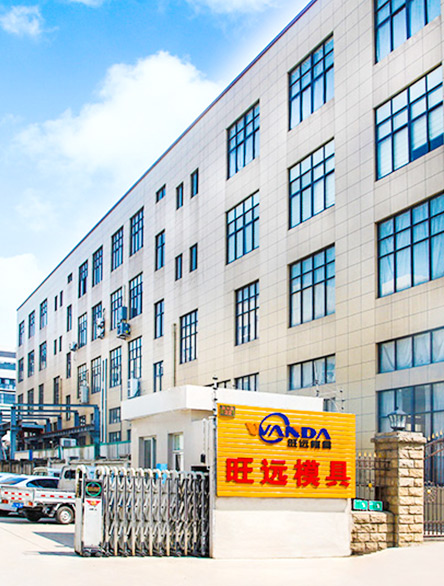
Mould Times
Taizhou Wanda Plastic Mould Co.,Ltd. is located in Taizhou Huangyan, where is being called the home town of mould. we are Plastic Industry Parts manufacturerWe have specializing designing and manufacturing auto parts mould and other plastic moulds by advanced CAD/CAM/CAE technology and CNC equipments , with highly qualified management personnel, senior technical engineers and efficient design team after professional training Our company supply all kinds of injection mould & blowing mould with high quality steel, strict heat treatment process, reliable structure and fine production to ensure the quality, improve the automation and efficiency of plastic products production, and the service life is more than 1 million mould times,with excellent quality, reasonable price and perfect after-sales service, we have won the trust and praise of our customers. Innovation and Advancement has always been our guiding star in this changing world. Welcome to Wanda Mould and welcome all friends to visit our beautiful orange city - Taizhou Huangyan.
A safety helmet mold is a tool used in the manufacturing process of safety helmets. Safety helmets are essential safety ...
The plastic industry is a diverse and dynamic industry that produces a wide range of plastic parts for different applica...
Auto parts molds are made through a complex process involving multiple steps. Here is a general overview of how an auto ...
Using an Auto Interior Parts Mold typically involves the following steps:1. Design the part: The first step in using an ...
What are the plastic industry parts?
The plastic industry produces a wide variety of parts and components for use in various applications. Some common plastic industry parts include:
Injection molded parts: These are plastic parts produced using injection molding, which involves melting plastic pellets and injecting the molten plastic into a mold.
Blow molded parts: These are plastic parts produced using blow molding, which involves inflating a heated plastic tube or parison into a mold to create the desired shape.
Extruded parts: These are plastic parts produced using extrusion, which involves forcing molten plastic through a die to create a continuous profile.
Thermoformed parts: These are plastic parts produced using thermoforming, which involves heating a plastic sheet and forming it into the desired shape.
Rotational molded parts: These are plastic parts produced using rotational molding, which involves rotating a mold while heating and cooling plastic material to create a hollow part.
Plastic sheets and films: These are flat plastic materials used for packaging, labeling, and other applications.
Plastic pipes and fittings: These are plastic components used in plumbing, irrigation, and other fluid-handling applications.
Plastic containers: These are plastic parts used for storing, transporting, and packaging various goods.
Plastic automotive parts: These are plastic parts used in the production of automobiles, such as interior and exterior components.
Plastic electronic components: These are plastic parts used in the production of electronic devices, such as casings and housings for computers and other electronics.
These are just a few examples of the many types of plastic industry parts that are produced and used in various industries and applications.
Are plastic industry parts safe?
Plastic industry parts can be safe when produced and used properly. However, as with any industrial process, there are potential hazards and risks associated with the production and use of plastic industry parts.
One of the main concerns with plastic industry parts is the potential for harmful chemicals, such as bisphenol A (BPA) and phthalates, to leach out of the plastic and into food or other products. To mitigate this risk, many plastic parts are now produced using BPA-free and phthalate-free materials, and food-grade plastics are used for products that come into contact with food.
Another potential safety concern with plastic industry parts is the risk of injury from sharp edges or corners on the parts, or from components that break or fail during use. To address this risk, manufacturers should design and produce plastic parts with safety in mind, and conduct thorough testing to ensure their products meet safety standards.
In addition, plastic industry parts can also pose environmental risks if not disposed of properly. Some plastics can take hundreds of years to break down and can harm wildlife and the environment if they are not recycled or disposed of in a responsible manner.
Overall, plastic industry parts can be safe when produced and used properly, and when appropriate safety and environmental measures are taken. Manufacturers and consumers alike have a responsibility to ensure the safe use and disposal of plastic products.